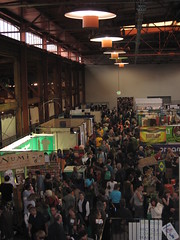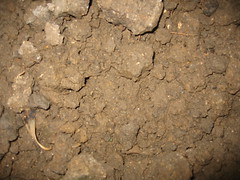Tesco takes one in every three pounds spent in the UK. That’s an awful lot of money that used to go to your local butcher, baker, greengrocer, hardware shop, corner shop, petrol station, clothes shop, etc.
Between 1997 and 2002, 50 specialised stores including butchers, bakers, fishmongers and newsagents closed every week. In May 2005 the Institute of Grocery Distribution revealed the loss of 2,157 owner-run corner shops. We lost 1,079 the year before, showing a disturbing rise in the rate that family-run shops like corner shops are being forced to give up the ghost.
A recent Mintel survey of shopping patterns commented that “arguably the biggest threat to smaller towns and the high street is increased provision of convenience items by major grocery superstores”.
A study in Fakenham, Norfolk, found that town-centre food retailers experienced a 64% decline in market share following the opening of an out-of-town supermarket. The number of convenience food stores fell from 18 to 13, and the number of vacant shops rose by 33%.
Friends of the Earth estimates that only 1 to 2% of supermarket turnover comes from food obtained from local providers (within 30 miles).
A report by the All Party Parliamentary Group for Small Shops stated: “Many small shops [in the UK] will have ceased trading by 2015 with few independent businesses taking their place. Their loss, largely the result of a heavily unbalanced trading environment, will damage the UK socially, economically and environmentally.”
If this has piqued your interest, go visit www.supermarket-sweep-up.com
Posted on 30th November 2006 by Ysanne Spevack | Permalink |
2 comments »
An amazing event. GreenFestivals.org
First up, a party hosted by Grist.org where I got to hobnob with some fabulous greenies like David Roberts who then went and wrote nice things about everyone, including me gristmill.grist.org/story/2006/11/13/135029/18
Then onward to the Festival itself… Not exactly a trade fair, although there were hundreds of organic and green manufacturers showing their wares. Not really a series of talks, although some of the most progessive green thinkers were there sharing their thoughts and visions.
Definitely a place to meet folk and be inspired by the strength of the eco-conscious community. To remember just how diverse and powerful we are, how varied our approaches can be, and how urgent our message is.
There were some inspiring speakers. Ones that come to mind are:
Amy Goodman from DemocracyNow.org
Joan Blades from MoveOn.org
Alisa Gravitz from CoopAmerica.org
Paul Stamets from Fungi.com
Hunter Lovins from NatCapInc.com
The other peeps I met that got me most were:
Mitra from ZelfoAustralia.com
Eric from SierraClub.org
Gregory and Nina from TheCoffeeBook.com
Thomas InventingSolutions.org
Daniel from BreakingOpenTheHead.com
and last but not least
GlobalOrgasm.org
Posted on 20th November 2006 by Ysanne Spevack | Permalink |
No comments yet »
Hydroponically-grown organic lettuce and salad leaves are everywhere in America. Every farmers’ market worth its salt offeres a selection of gourmet mixed leaves grown in an organic solution of water and minerals under bright lights. They taste lovely and look the part.
However, hydroponics are completely banned under the organic legal standards throughout Europe.
The Soil Association’s policy manager, Gundula Azeez says:
“The reason why hydroponics are not allowed in EU organic production is that organic farming is a system based on the soil, in particular that plant nutrition is based on the activities of living organisms in the soi. This was discovered by the early organic researchers to be the way plants receive their nutrients in natural ecosystems.”
“The Soil Association is interested in ensuring that farming is both sustainable and also produces healthy food. While you might be able to make a case that certain hydroponic systems are sustainable (would have to use no agro-chemicals, as that involves great use of oil), we believe that you lose out on the health side, and probably in a major way in the long term. Intensive non-organic farming can actually be likened to hydroponics, in that the soil is used simply as a substrate for the receipt of nutrients in solution, and soil biological activity is suppressed in such circumstances.”
So in effect, what the Soil Association believes is that you need soil to grow stuff organically. It’s not enough to grow plants without using chemicals, but dangling in an artificial environment or bright electric lights and a nutrient rich solution. You need micro-organisms and love and the rich smell of earth.
Posted on 1st November 2006 by Ysanne Spevack | Permalink |
No comments yet »






